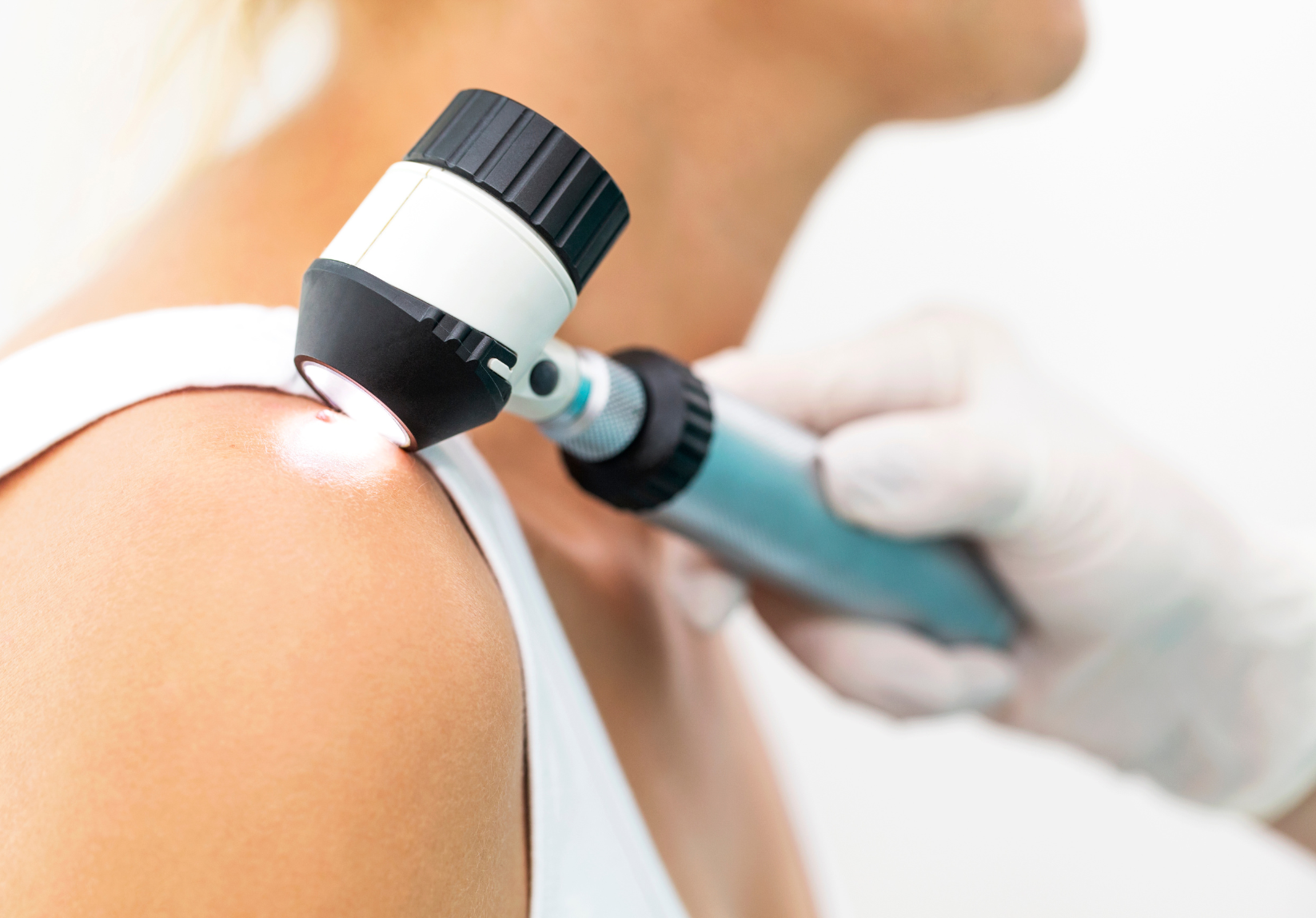
May is Skin Cancer Awareness Month
May marks the start of Skin Cancer Awareness Month—a crucial time dedicated to educating the public about the risks, prevention, and early detection of skin cancer. Here’s everything you need to know to protect yourself and your loved ones.
Understanding Skin Cancer
Skin cancer is the most common type of cancer in the United States, with millions of cases diagnosed each year. It occurs when skin cells grow uncontrollably, often due to damage caused by ultraviolet (UV) radiation from the sun or tanning beds. The three most common types of skin cancer are:
- Basal Cell Carcinoma (BCC):
- The most frequent type of skin cancer.
- Usually appears as a small, waxy bump on sun-exposed areas like the face and neck
- Squamous Cell Carcinoma (SCC):
- Often develops as a firm, red nodule or a flat lesion with a scaly crust.
- Common on sun-exposed areas but can also occur in scars or skin ulcers.
- Melanoma:
- The deadliest form of skin cancer.
- Can develop anywhere on the body, even in places not exposed to sunlight.
- Often appears as a new mole or a change in an existing mole.
The Importance of Early Detection
Early detection is key to effectively treating skin cancer. Here are some signs to watch for, using the ABCDE rule for melanoma:
- Asymmetry: One half of the mole doesn’t match the other half.
- Border: Edges are irregular, ragged, or blurred.
- Color: Varied shades of brown, black, or even red and blue.
- Diameter: Greater than 6mm (about the size of a pencil eraser).
- Evolving: Changes in size, shape, or color over time.
Prevention Tips
While skin cancer is common, it is also highly preventable. Here are some essential tips to help protect your skin:
- Use Sunscreen:
- Apply a broad-spectrum sunscreen with at least SPF 30.
- Reapply every two hours and after swimming or sweating.
- Seek Shade:
- Avoid direct sun exposure, especially between 10 AM and 4 PM when UV rays are strongest.
- Wear Protective Clothing:
- Opt for long-sleeved shirts, pants, and wide-brimmed hats.
- Use sunglasses that block both UVA and UVB rays.
- Avoid Tanning Beds:
- Tanning beds emit harmful UV radiation that increases the risk of skin cancer.
- Perform Regular Skin Checks:
- Examine your skin monthly for any new or changing moles.
- Schedule annual skin exams with a dermatologist.
Join the Movement
During Skin Cancer Awareness Month, take the opportunity to educate yourself and others about the importance of skin health. Share this information with friends and family, participate in local awareness events, and consider supporting organizations focused on skin cancer research and patient support.
By staying informed and vigilant, you can significantly reduce your risk and help others do the same. Let’s make this May a month of action and awareness, protecting our skin and our health.
Stay safe, stay protected, and spread the word about skin cancer awareness!
—
Protecting your skin is a lifelong commitment. For more information and resources, visit Skin Cancer Foundation.
Disclaimer: The content shared on our blog is purely for educational and informational purposes and should not be taken as professional medical advice. We always encourage our readers to consult with a qualified healthcare professional for any health-related queries and to prioritize their guidance over the information provided here. In case of a medical emergency, it’s crucial to call 911 or visit the nearest emergency room immediately.
For your convenience, our blog may include links to external websites. Please note that visiting these third-party sites is at your own discretion and risk, and you’ll be subject to their own usage policies. The Dermatology Collective, along with any contributors to our blog, does not endorse or guarantee the accuracy of the information found on any linked external websites.
Engaging with our blog does not establish a patient-doctor relationship. If you’re interested in professional medical advice or interventions, we recommend reaching out directly to a healthcare provider. Should you wish to schedule an appointment with a healthcare expert, please feel free to contact our office at (626) 240-2020.


Leave a Reply